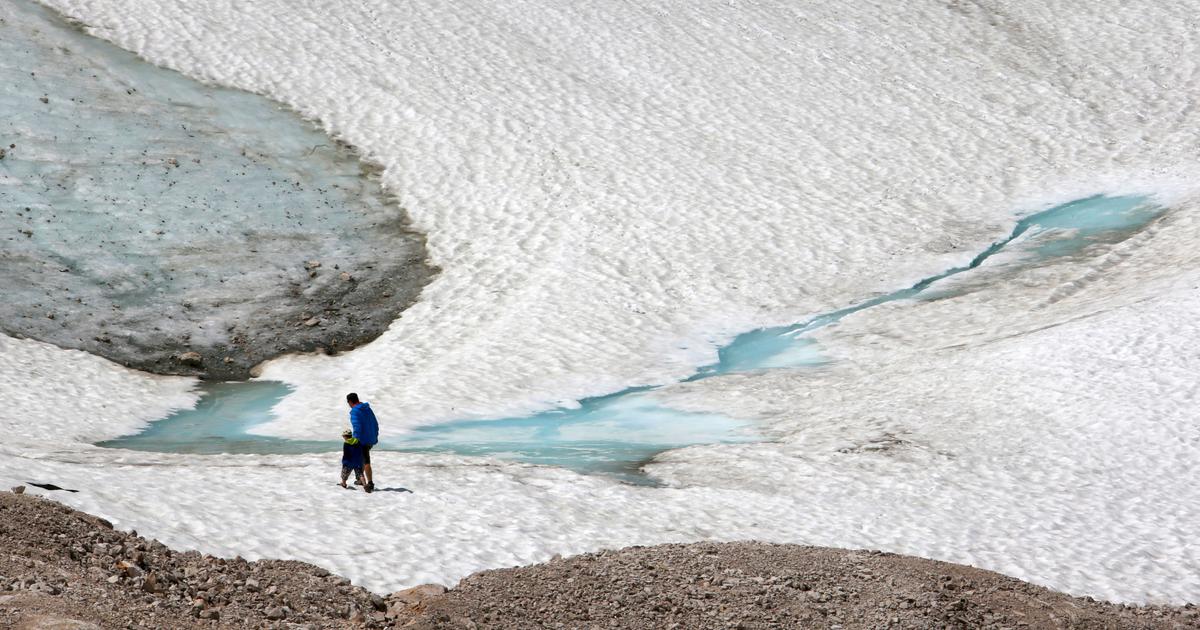The southern part of the Schneeferner glacier, in the Bavarian Alps, melted at an accelerated rate during this particularly hot summer and permanently lost its status as a glacier, the Bavarian Academy of Sciences announced on Monday September 26.
The thickness of the ice no longer even reaches 2 meters in many places, and less than 6 meters in the deepest places, according to ground-penetrating radar measurements carried out in September.
In 2018, she was still 10 meters, recalls the academy in a press release.
“
We deduce that the rest of the ice will have completely melted within a year or two
,” she adds.
“
At the same time, the surface of the glacier has shrunk to less than 1 hectare, which is around half of what it was in 2018
”.
Read alsoGlobal warming: concern in the high mountains before the end of summer
There therefore remain officially four sites still fulfilling the criteria for glaciers in Bavaria: the northern part of the Schneeferner, the Höllentalferner, on the famous Zugspitze massif (2962 m altitude) and the glaciers of Watzmann (2713 m) and Blaueis ( 2607 m), on the Berchtesgarden massif.
A report released two years ago by the regional government warned of a faster-than-expected melting of glaciers, the last of which could disappear completely within a decade, while earlier estimates had set the fateful date at 2050 .
Read alsoGlobal warming: the Alps are turning green and that does not bode well
"
Climate change is hitting the Bavarian glaciers hard
," local Environment Minister Thorsten Glauber said at the time.
The melting of glaciers in the Alps and elsewhere in the world, attributed to global warming, has been closely monitored since the early 2000s. Two years ago, a study published in the journal Nature revealed that their rapid melting these twenty years has now contributed to more than 20% of sea level rise.

